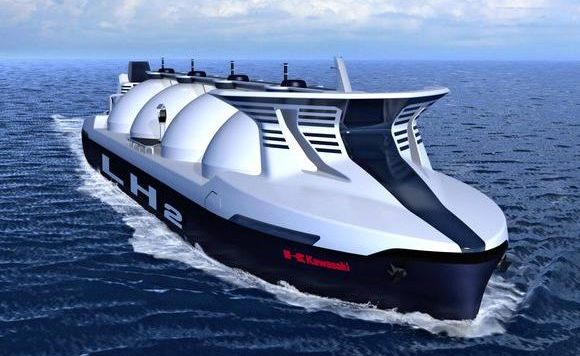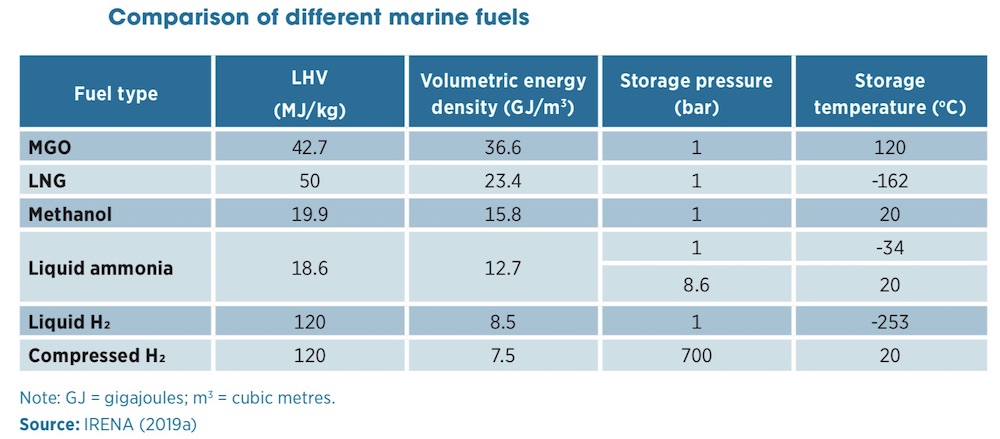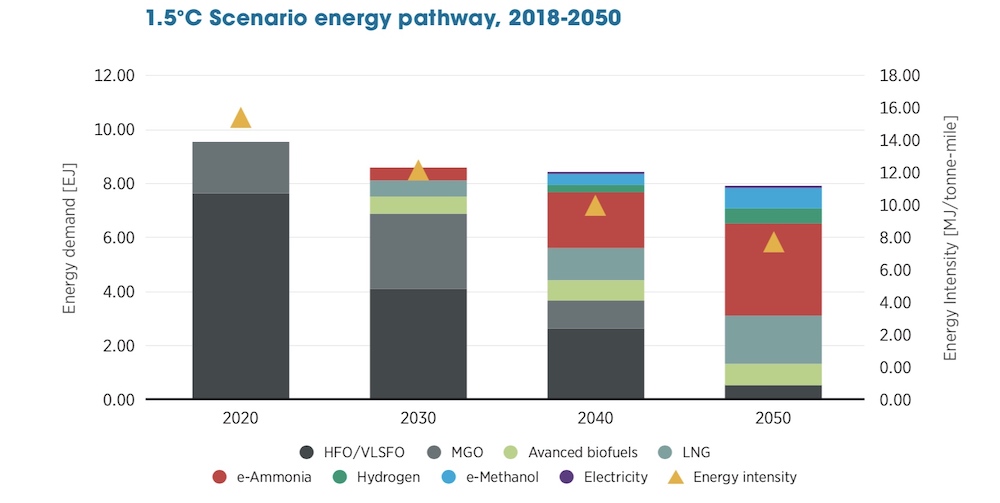Case made for green hydrogen ahead of COP26

The International Renewable Energy Agency (IRENA) has issued a 115-page report in which it makes a strong case for the rapid development of green hydrogen infrastructure, suggesting renewable fuels based on the substance and advanced biofuels could cut up to 80% of CO2 emissions attributed to shipping by 2050.
Renewable fuels should contribute at least 70% of the sector’s energy mix in 2050, IRENA’s report suggests, outlining a roadmap for the global shipping sector in line with the global 1.5°C climate goal. The report comes out just over a fortnight ahead of COP26, a major international climate summit taking place in Glasgow.
IRENA’s director-general Francesco La Camera said: “Decarbonising global shipping is one of the most challenging sectors to address – and despite raised ambitions – current plans fall short of what is needed. This IRENA outlook clearly shows that cutting CO2 emissions in such a strategic, hard to abate sector is technically feasible through green hydrogen fuels.”
Cutting CO2 emissions in such a hard to abate sector is technically feasible through green hydrogen fuels
IRENA’s decarbonisation 1.5°C pathway (see chart at bottom of article) is based on four key measures such as indirect electrification by employing green hydrogen-based fuels, the inclusion of advanced biofuels, the improvement of vessels’ energy efficiency and the reduction of sectoral activity due to systemic changes in global trade dynamics.

E-methanol and e-ammonia are the most promising green hydrogen-based fuels, with particularly e-ammonia set to be the backbone for the sector’s decarbonising by 2050, the IRENA report predicts. E-ammonia could represent as much as 43% of the sector’s energy needs in 2050, which would imply the use of about 183m tonnes of renewable ammonia for international shipping alone, a comparable amount to today’s ammonia global production, according to IRENA projections.
In order to make these new fuels price competitive, IRENA has joined the growing throng of organisations calling for a carbon levy, something that will be keenly debated at next month’s Marine Environment Protection Committee (MEPC) gathering at the International Maritime Organization.
Splash will be bringing readers regular updates from both COP26 and MEPC over the coming six weeks.


In order to make these new fuels price competitive, IRENA has joined the growing throng of organisations calling for a carbon levy, something that will be keenly debated at next month’s Marine Environment Protection Committee (MEPC) gathering at the International Maritime Organization.
Interesting that the call of the Pacific micro-states for $100/tonne has gone from dark horse to obvious choice in just a few months. I just listened to the UN Sec Gen in Beijing calling for zero emissions by 2050 and was asked to comment by a journo on what this meant for MEPC77. My reply:
Yes, the Pacific has been faithfully echoing Gutteres call for strong carbon pricing since he graced the Pacific in Tuvalu insisting on a strong carbon price for shipping emissions – we have been asking ever since when IMO will follow the SG’s clear guidance. Our proposals to IMO are simply responding to the call of the world’s senior Civil Servant. We need a levy, we need a strong floor price, we need it now. And we need IMO collectively to tell the rest of the global family that it will commit to 100% by no later than 2050 – not net, not caveat, just a very simple resolution that it will be onboard for 1.5 – that must be the minimum commitment that IMO can make at MEPC77. If the member states cant agree even that small milestone that then we must admit that IMO’s mandate to deliver a global solution is in question. And that would be a global tragedy because regional solutions will not favour the poor and the weak. No pressure but its time for IMO to deliver.